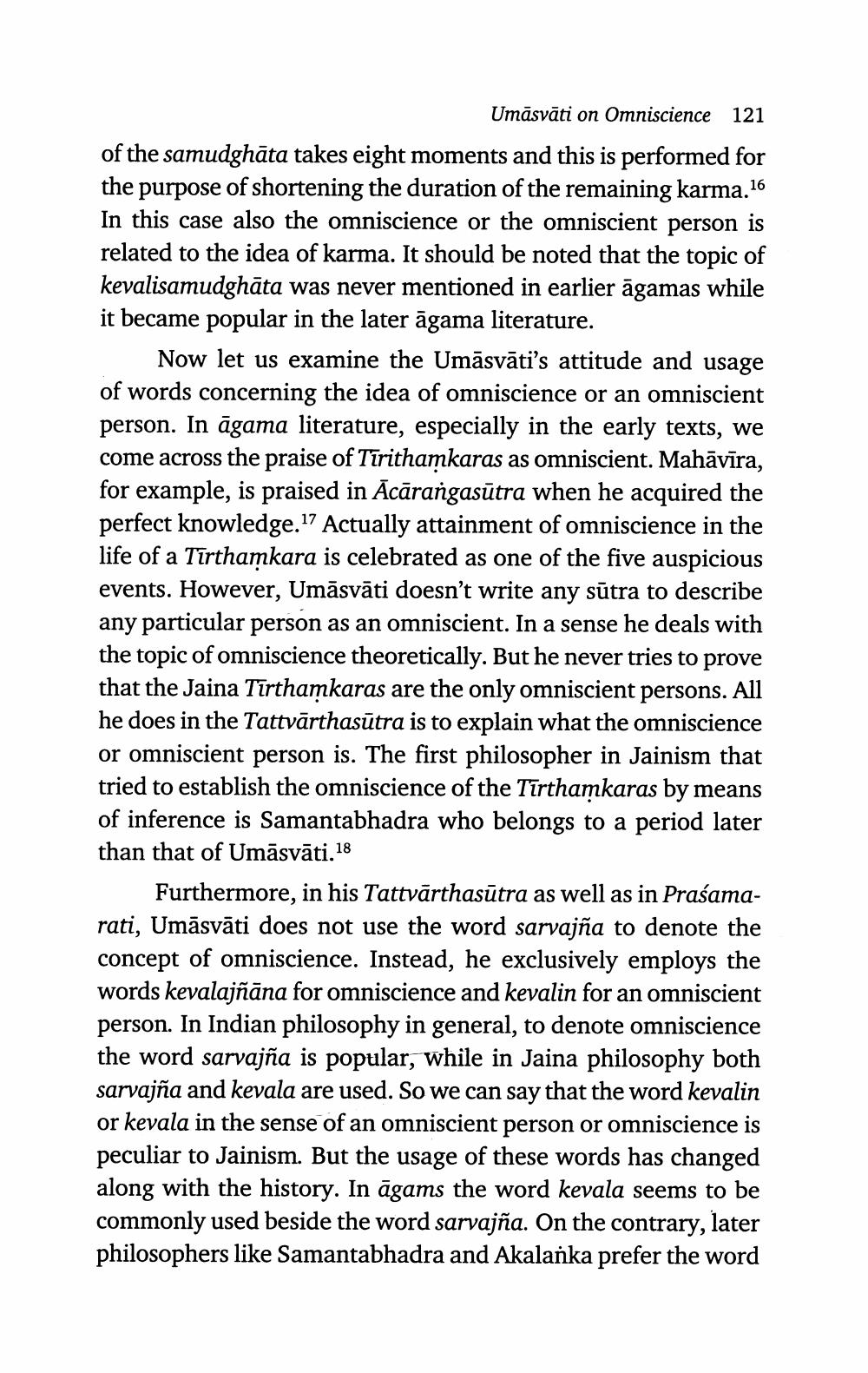________________
Umāsvāti on Omniscience 121
of the samudghāta takes eight moments and this is performed for the purpose of shortening the duration of the remaining karma.16 In this case also the omniscience or the omniscient person is related to the idea of karma. It should be noted that the topic of kevalisamudghāta was never mentioned in earlier agamas while it became popular in the later agama literature.
Now let us examine the Umāsvāti's attitude and usage of words concerning the idea of omniscience or an omniscient person. In agama literature, especially in the early texts, we come across the praise of Tirithamkaras as omniscient. Mahāvīra, for example, is praised in Acarangasūtra when he acquired the perfect knowledge.17 Actually attainment of omniscience in the life of a Tīrthamkara is celebrated as one of the five auspicious events. However, Umāsvāti doesn't write any sūtra to describe any particular person as an omniscient. In a sense he deals with the topic of omniscience theoretically. But he never tries to prove that the Jaina Tirthamkaras are the only omniscient persons. All he does in the Tattvārthasūtra is to explain what the omniscience or omniscient person is. The first philosopher in Jainism that tried to establish the omniscience of the Tirthamkaras by means of inference is Samantabhadra who belongs to a period later than that of Umāsvāti.18
Furthermore, in his Tattvārthasūtra as well as in Prasamarati, Umāsvāti does not use the word sarvajña to denote the concept of omniscience. Instead, he exclusively employs the words kevalajñāna for omniscience and kevalin for an omniscient person. In Indian philosophy in general, to denote omniscience the word sarvajña is popular, while in Jaina philosophy both sarvajña and kevala are used. So we can say that the word kevalin or kevala in the sense of an omniscient person or omniscience is peculiar to Jainism. But the usage of these words has changed along with the history. In agams the word kevala seems to be commonly used beside the word sarvajña. On the contrary, later philosophers like Samantabhadra and Akalanka prefer the word




